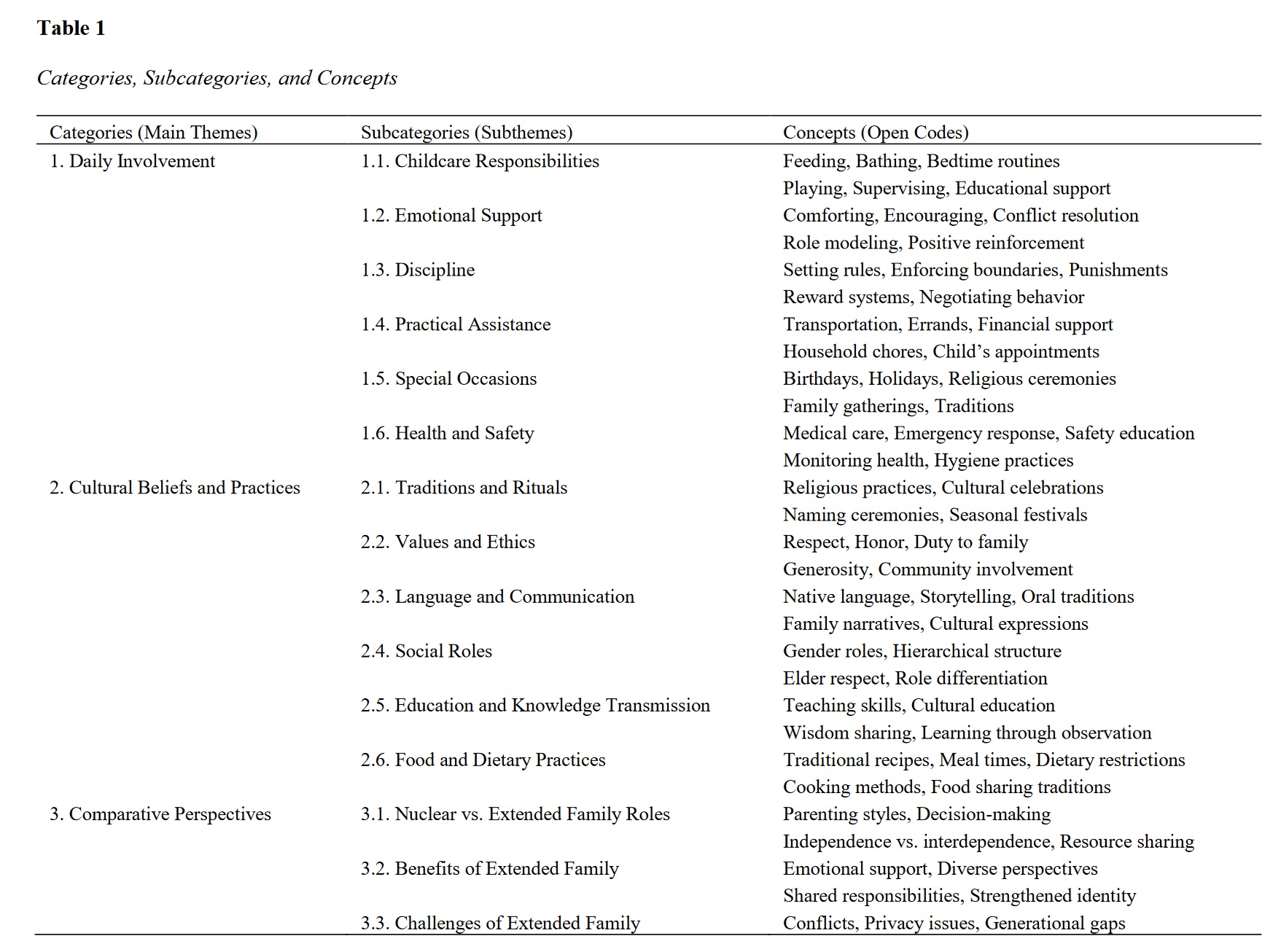Exploring the Role of Extended Family in Child Rearing Practices Across Different Cultures
Keywords:
Extended family, child-rearing practices, cultural beliefs, qualitative research, family dynamics, child development, emotional support, generational gapsAbstract
Objective: The objective of this study was to explore the role of extended family in child-rearing practices across different cultures. The research aimed to understand how extended family members contribute to the upbringing of children and the impact of these practices on child development and family dynamics.
Methods: This qualitative study employed semi-structured interviews to collect data from 25 participants of diverse cultural backgrounds. The participants were selected through purposive sampling to ensure a variety of perspectives. Data collection continued until theoretical saturation was achieved. The interview data were analyzed using NVivo software, facilitating systematic coding and thematic analysis to identify key themes and patterns related to the involvement of extended family in child-rearing.
Results: The analysis revealed four main themes: daily involvement, cultural beliefs and practices, comparative perspectives on nuclear versus extended family roles, and personal experiences. Extended family members were found to provide substantial support in daily childcare responsibilities, emotional support, discipline, practical assistance, and health and safety. Cultural beliefs significantly influenced child-rearing practices, with extended families playing a crucial role in transmitting traditions, values, and language. Participants highlighted both the benefits and challenges of extended family involvement, noting the importance of emotional support and the difficulties of managing conflicts and generational gaps. Personal experiences underscored the positive and negative aspects of extended family dynamics and the coping strategies employed to navigate these relationships.
Conclusion: The study underscores the vital role of extended family members in child-rearing practices across different cultures. Their involvement offers emotional, practical, and cultural support, enhancing children's development and family cohesion. However, challenges such as conflicts and generational gaps must be addressed. Future research should include larger and more diverse samples, employ mixed-methods approaches, and explore the perspectives of extended family members. Practitioners should recognize the value of extended family involvement and support families in managing these complex relationships.
Downloads

Downloads
Additional Files
Published
Issue
Section
License
Copyright (c) 2024 Veronica Longo (Author); Nadereh Saadati (Corresponding Author); Mehmet Karakus (Author)

This work is licensed under a Creative Commons Attribution-NonCommercial 4.0 International License.






